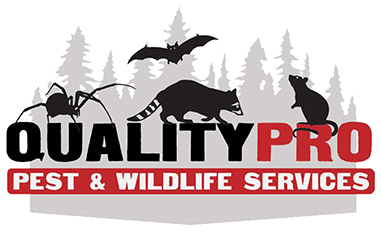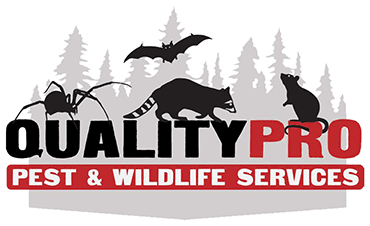
Understanding Pest Behavior and Habitats
Identifying Common Outdoor Pests
When enjoying the tranquility of your backyard, the last thing you want is an uninvited pest turning your relaxation into frustration. Common outdoor pests like mosquitoes, ants, wasps, and rodents not only cause discomfort but can also pose health risks. Mosquitoes, for instance, are infamous for their itchy bites and potential to transmit diseases. Ants, while less harmful to human health, can become a nuisance when they invade picnic areas or march into your home. Wasps, with their painful stings, can be particularly aggressive, especially near their nests. Rodents, such as mice and rats, not only spread diseases but can also cause significant property damage. Identifying these pests is the first step towards managing them, and it starts with recognizing their unique characteristics: the distinct buzz of a mosquito, the organized lines of ants, the hovering flight of wasps, or the scurrying of rodents.
Recognizing Signs of Pest Infestation
Being vigilant about the signs of pest infestation can save you a lot of trouble down the line. Key indicators include droppings, which can often be found along walls or in secluded corners; nests, which may be hidden in the foliage or even within the structures of your outdoor living space; and property damage, such as gnawed wood or chewed wiring, which is a telltale sign of rodent activity. Other less obvious signs might be the sounds of movement or scratching within walls or the appearance of insect wings, which some species shed after mating. Early detection is crucial, as it allows homeowners take timely action before the infestation becomes more serious and harder to control.
Natural and Non-Toxic Pest Control Strategies
Utilizing Plants as Natural Repellents
For those who prefer a more natural approach to pest control, incorporating certain plants into your garden can be a game-changer. Plants like citronella, known for its mosquito-repelling properties, can be a fragrant addition to your outdoor space. Lavender, with its soothing scent, is not only a delight for the senses but also deters a variety of insects. Marigolds are another excellent choice; their bright blooms add color to your garden while warding off unwanted critters. These plants serve a dual purpose: they enhance the aesthetic appeal of your residence while keeping pests at bay. By strategically placing these plants around seating areas or along the perimeter of your property, you can create a natural barrier against pests.
DIY Pest Control Remedies
Do-it-yourself pest control remedies can be effective and are often made with everyday household items, making them a cost-effective and eco-friendly option. For example, a simple mixture of water and dish soap can act as an insecticide for aphids and other soft-bodied pests. Vinegar, too, can be used to create a variety of repellents and traps, particularly for ants and fruit flies. When creating these DIY solutions, it's important to prioritize safety and environmental considerations. Always use non-toxic ingredients and apply them in a way that minimizes risk to pets, children, and beneficial wildlife. With a little ingenuity and some basic ingredients, residents can keep their outdoor spaces pest-free without resorting to harsh chemicals.
Chemical Pest Control: Safety and Application
Choosing the Right Pesticides
When natural methods are not enough, chemical pesticides can be a powerful tool in your pest control arsenal. However, choosing the right product is essential to ensure effectiveness while minimizing environmental impact. Look for pesticides with active ingredients that specifically target the pests you're dealing with. For instance, pyrethroids are effective against a wide range of insects but should be used judiciously due to their potential impact on non-target species. It's also important to consider the lifecycle of the pest; some chemicals are more effective at certain stages. Opt for products with a low toxicity level to humans and pets, and those that are labeled as environmentally friendly, to ensure that your pest control efforts are as responsible as they are effective.
Proper Pesticide Application Techniques
Applying chemical pesticides safely requires careful attention to detail. Always start by donning the appropriate protective gear, such as gloves, masks, and long-sleeved clothing, to prevent direct contact with the chemicals. Read the product label thoroughly and follow the instructions to the letter. Timing is also crucial; apply pesticides during calm weather to prevent drift, and avoid times when beneficial insects, like bees, are active. Be mindful of water sources and avoid application near ponds or streams to prevent contamination. By adhering to these guidelines, homeowners can use chemical pest control effectively while protecting their health and the environment.
Pest-Proofing Outdoor Living Areas
Structural Modifications for Pest Prevention
Preventing pests from invading your outdoor living areas often starts with making smart structural modifications. Sealing gaps and cracks in decks, patios, and the exterior of your home can deter rodents and insects from gaining entry. Materials such as fine mesh screens can be installed over vents and windows to keep flying pests out while still allowing for ventilation. For those considering the local climate and typical pest species when choosing construction materials and designs can be particularly beneficial. For example, using treated wood or certain metals can prevent termite infestations and rust-resistant materials can withstand the damp New York weather, which often attracts pests seeking moisture.
Regular Maintenance and Cleaning Best Practices
Maintaining a clean and well-kept outdoor area is one of the most effective ways to discourage pests. Regularly emptying and cleaning trash bins, keeping the yard free of debris, and removing standing water can eliminate potential breeding grounds for pests. Ensuring that food is not left unattended and that barbecue grills and outdoor dining areas are thoroughly cleaned after use will also help keep pests at bay. For homeowners, it's important to stay on top of fallen leaves and stagnant water, especially after the frequent rains, to prevent creating a haven for pests. A consistent cleaning routine is not only good for pest control but also enhances the overall enjoyment of your outdoor space.
Monitoring and Evaluating Pest Control Measures
Setting Up a Pest Observation Schedule
To ensure that your pest control measures remain effective, establishing a regular observation schedule is key. This involves routinely inspecting your outdoor living areas for signs of pest activity, such as new droppings, nests, or damage to plants and structures. In New York, where seasonal changes can influence pest behavior, it's particularly important to adjust your observation frequency accordingly. For example, during the warmer months when pests are most active, inspections might need to be more frequent. Keeping a log of your observations can help you track patterns and identify which methods are working and which may need to be adjusted.
Adjusting Strategies Based on Results
As you monitor the effectiveness of your pest control strategies, be prepared to make adjustments. If you notice a decrease in pest activity, it may be tempting to relax your efforts, but continued vigilance is necessary to prevent a resurgence. Conversely, if you're not seeing the desired results, it may be time to try a different approach. This could involve changing the types of plants you're using as natural repellents, modifying your DIY remedies, or consulting with a professional pest control service. Remember that pest populations and behaviors can change with the seasons, so your strategies should evolve as well. By staying adaptable and responsive to the results of your efforts, you can maintain a pest-free outdoor living space year-round.
Don't Hesitate to Call QualityPro Pest & Wildlife Services This Summer
At Quality Pro Pest & Wildlife Services, we understand the importance of enjoying your outdoor spaces without the annoyance of pests. Our team of pest control experts is dedicated to providing safe, effective, and environmentally conscious solutions tailored to the unique needs of your home. If you're looking for professional assistance to keep your outdoor living areas comfortable and pest-free, today. Let us help you reclaim your peace of mind and the joy of the great outdoors.
Call QualityPro Pest & Wildlife Services now at (914) 877-3006 or contact us online.

